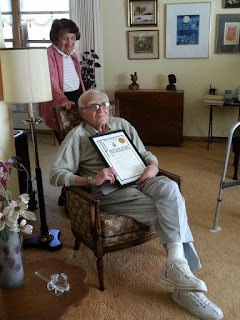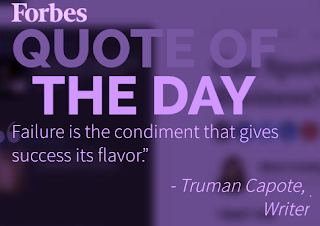I'm not sure exactly when I met Milton Peckarsky. It was probably around 1997, a year or so after I arrived in Milwaukee. I think I had sung on a MacDowell Club Concert, and he approached me to ask if I would be interested in exploring some contemporary music.
I had done a little contemporary music up to that point - I'd been in the world premiere of
The Dream of Valentino at Washington Opera (before they added the word "National" to their name) and I had done the Elizabeth Vercoe "Jehanne de Lorraine" at a concert at Marquette University, but I didn't really consider myself a contemporary musician. That stuff was hard.
Well, that all changed, and for the next 10 years or so, I was pretty much known as a contemporary musician because of Milton. He introduced me to composers such as Yehuda Yannay, Josh Schmidt, Sigmund Snopek III, David Bohn, Keith Carpenter, and Cornel Taranu. Because of him, I received amazing reviews for a piece that Yehuda wrote (not for me, but which I performed) as well as for pieces by Alban Berg. These were performed on a concert called Variety 2000: Expressionism and Surrealism - The Soul Turned Inside Out. THREE HOURS of music, film and theater (including pornographic puppet theater) celebrating what could be described as pre-emo navel contemplating (it was a real toe-tapper, as you can imagine). There were 6 performances of it and every single performance was sold out. These were on the Music Of Our Time series, which he had founded.
He also commissioned Schmidt, Snopek, Bohn and Carpenter to write pieces for the two of us to do together at a MacDowell Club recital at his home.
Milton also arranged for me to sing the
Tzara Songs by Cornel Taranu, which were then recorded for a collection of Romanian music. The songs were based on the poetry of Dadaist poet Tristan Tzara and were not easy, either musically or interpretatively (cheminée, cheminée, les rois des poissons passé: Chimneys, chimneys, the kings of past fish). Listening to them as I write this - I am really proud of these pieces and would like to sing them again.... maybe with slightly better French....
He and his wife Vivian (who I just found out passed away 3 years ago) were also like second parents to me. They came to my wedding (and in fact, my mother-in-law apparently thought Vivian
was my mother and embraced her warmly, much to the consternation of my
own mother).
The pictures above accompanied a press release for an October 2000 concert called "Journeys," which Milton and I did at Carroll College (now Carroll University), and included songs by Hugo Hartig, Arnold Schoenberg, Ned Rorem, Charles Ives, and Maurice Ravel, as well as my debut as a narrator in Theodor Ullman's
The Love and Death of Cornet Christoph Rilke. This piece was particularly meaningful to Milton as a Jew - it was the final piece that Ullman wrote while a prisoner at the arts camp, Theresienstadt, prior to being moved to Auschwitz. As an actor, it was particularly meaningful to me, because the actor for whom it was intended had been executed on the day of its scheduled performance.
I hope I gave something back to Milton as well - one thing I did for him was to arrange for Mayor Tom Barrett to declare September 14, 2012 as Milton Peckarsky Day. Milton had just been diagnosed with Alzheimer's at that time, and the MacDowell Club wanted to honor him while he was still cognizant of the honor. Rest in peace, dearest Milton, dearest Vivian. I will never forget you.
 |
| Milton & Vivian Peckarsky |












